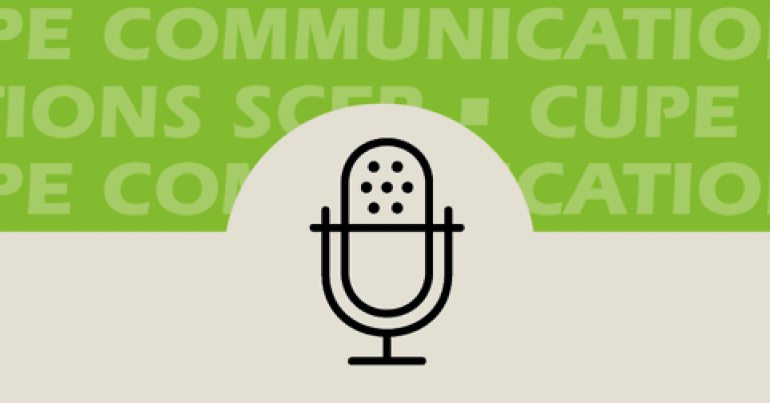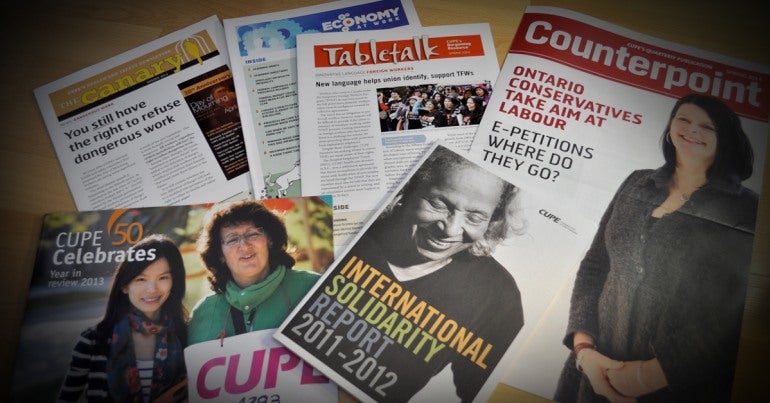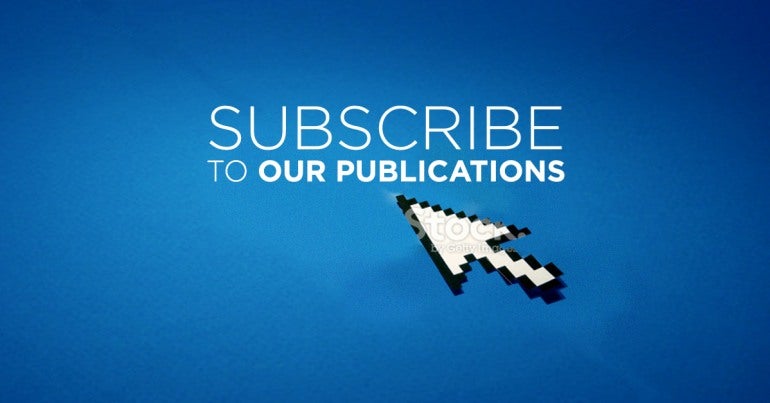What is social media?
Social media is a rapidly changing area. Today common examples of social media include blogs, Facebook, Instagram, LinkedIn, Twitter, email, chat rooms and YouTube.
Think of how often you use online tools throughout your day. Are you using them at work as well? Use of social media has many benefits and can contribute to productivity. However, we must be aware that using social media for work and in our personal lives can impact our employment.
Can we use social media for communicating as a local?
Social media is a great tool for communicating with members about bargaining, campaigns, grievances or upcoming workshops. You can also mobilize public support for your initiatives. Your online presence is a fast, efficient method to reach a large audience in a short period of time through such tools as an email blast or a Facebook group.
However, you must also consider the risks of misusing social media:
- Information posted is immediate. It cannot be taken back.
- Your post is forever. It is very difficult to erase or retract your social media posts. Others can easily forward, copy or reuse your material. If you wouldn’t post the information in the office or verbally announce it, do not put it online.
- Confidential information about pending human rights claims, grievances, constitutional trials and settlement offers should not be posted.
- Careless social media use can damage the union’s reputation and its ability to represent members effectively. Careless posts can damage the reliability of executives and cause members to lose confidence in them. This mistrust can undermine solidarity and reduce the local’s clout with the employer.
- Your local’s positions vis-a-vis management may be compromised if members post about strike or ratification votes or matters that arise during bargaining and other negotiations. Employers can file complaints at the labour board that the duty to bargain in good faith has been violated.
-
If members use social media to criticize or harass each other, posts can become the basis for internal union trials. Even if a message is only to one person, it is likely others will become aware of it. Trials take time and resources away from bargaining, mobilizing members and grieving violations of your collective agreement.
What can I do while on-duty?
Employers expect that when you are at work, you are working. An employer has the right to impose discipline when computer usage and/or social media is abused.
Although many employees do not think of it, spending time on social media as opposed to work duties may be considered time theft.
Other issues that might concern an employer include:
- reduced productivity levels
- threats to internal computer systems such as viruses and malware
- insubordination
- the lowering of morale
- disclosure of confidential information
-
damage to the employer’s reputation
Do I have an expectation of privacy?
Employees should not assume that they have an expectation of privacy at work or while using employer tools, systems and equipment. Whether an employee can have a reasonable expectation of privacy is in part dependent on the mode of communication and how widely it could be disseminated. Emails sent through the employer’s network and during working hours can easily be forwarded or printed for others’ viewing. Employees should not expect these emails to remain private.
The employer’s acceptable use policies and other policies related to monitoring also influence the expectation of privacy. For an employer to rely on these policies, they must be properly communicated and consistently enforced.
What is social media monitoring?
Employers have many ways of monitoring your activities on social media. They can monitor email, web browsing, key strokes, phone and text usage, cell phone data and more. In the case of misconduct or discipline, evidence captured by social media monitoring can often be used by the employer in arbitration.
What about off-duty conduct?
Most people consider what they do on their private time to be private. However, employers are increasingly able to discipline employees for their off-duty conduct with only a minimal link between the conduct and the employer. Some workers, like firefighters, paramedics, police officers and other public employees, are subject to greater scrutiny due to the nature of their work.
Even if you have not actively used social media, your actions could be captured in photos or videos and distributed by others. Regardless of how identifiable your screen name is your employer can still trace the account to you. Assigning nicknames or initials to describe a workplace, co-worker, manager or client will not prevent others from determining the subject of your comments.
Some of the issues that can lead to negative consequences include:
- defaming the employer on social media
- using work tools (laptops, cell phones, email) for inappropriate reasons
- posting comments or pictures that contradict being on sick leave
- engaging with coworkers or others in online harassment
- posting racist, sexist or other discriminatory remarks or images
-
violating confidentiality agreements or workplace codes of conduct
Discipline
Ultimately, what will matter in an arbitration about social media activity is whether or not the use of social media has affected:
- the employer’s business interests - especially its reputation. In some cases, an employer will be able to rely on indirect harm to its reputation.
-
the employee’s ability to perform the job. An arbitrator might consider whether it has become unreasonable to expect that the employee can continue to work productively and harmoniously with others at the workplace.
As in all discipline cases, arbitrators will consider the nature, severity and frequency of the conduct in question. The employee’s disciplinary record and how the employee acts in the aftermath will also be considered. Where appropriate, employees should consider admitting to wrong-doing, showing remorse and apologizing to co-workers or supervisors they have insulted or demeaned.
Liability issues
In addition to potential discipline by employers, CUPE members must be careful not to put themselves and CUPE at risk for human rights and civil claims (such as defamation or cyber-bullying) by individuals who are the subjects of social media posts. More severe posts of a harassing nature can also lead to criminal investigations and charges.
What should I do if I have been harassed online?
Like other forms of harassment, your employer has obligations to prevent and address cyber-bullying.
- If you are dealing with harassment or cyber-bullying, get help right away. It is unlikely that this bullying will stop without intervention.
- Keep records of the email, message, tweet, etc. Keep in mind that if you respond it will become part of the record too.
- Contact your steward and notify your supervisor, when appropriate.
- Review your employer’s policies to find out what you can expect from the employer (such as an investigation).
-
Visit the website of your jurisdiction’s occupational health and safety department for additional resources.
If the matter is not resolved, you may be able to file a grievance, make a worker’s compensation claim if you have suffered an injury or initiate a human rights complaint when the harassment is related to one of the human rights grounds. In severe cases, it may be appropriate to contact the police.
A word to the wise
- Get familiar with your employer’s social media and/or computer use policy and make sure your members do this, as well.
- Don’t use employer supplied work equipment (such as a cell phone, laptop, email account, office server) for personal or union activities.
- Avoid having clients or managers as Facebook friends or Twitter followers.
- Be careful not to post photos from the workplace without the consent of your employer and those pictured, such as clients.
- Don’t access or distribute pornographic or sexually explicit text, images, videos or webpages at work or using employer equipment or technology.
- Remember that regardless of whether you are at work or not while communicating online, it is the impact of the communication itself that determines discipline.
- Take measures to protect the security of your information and restrict who can access your accounts/posts. But always remember that social media posts are never really private and can be accessed by others.
- Take the time to consider what you post and whether it might lower the reputation of your employer or a co-worker. Don’t write anything online that you would not say in public or put in writing attached to your real name.
- You cannot hide behind pseudonyms or anonymity.
- Social media posts, like diamonds, are forever. They can sometimes come back to haunt you long after you have forgotten you ever posted them.
-
Create a strategy for your local’s communication through social media and use this wonderful resource to engage and mobilize your members!
For more information about social media, please contact your CUPE National Representative.





